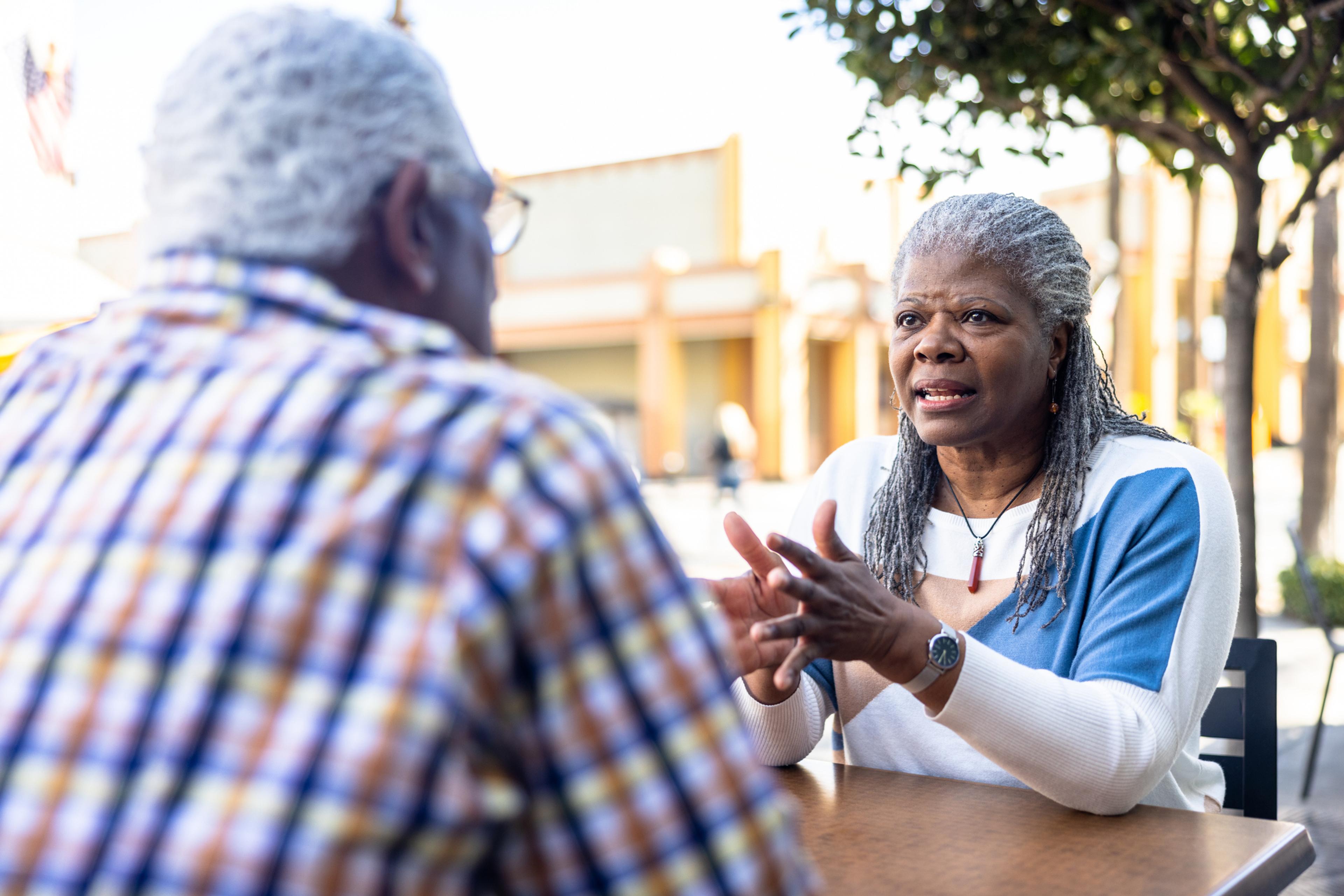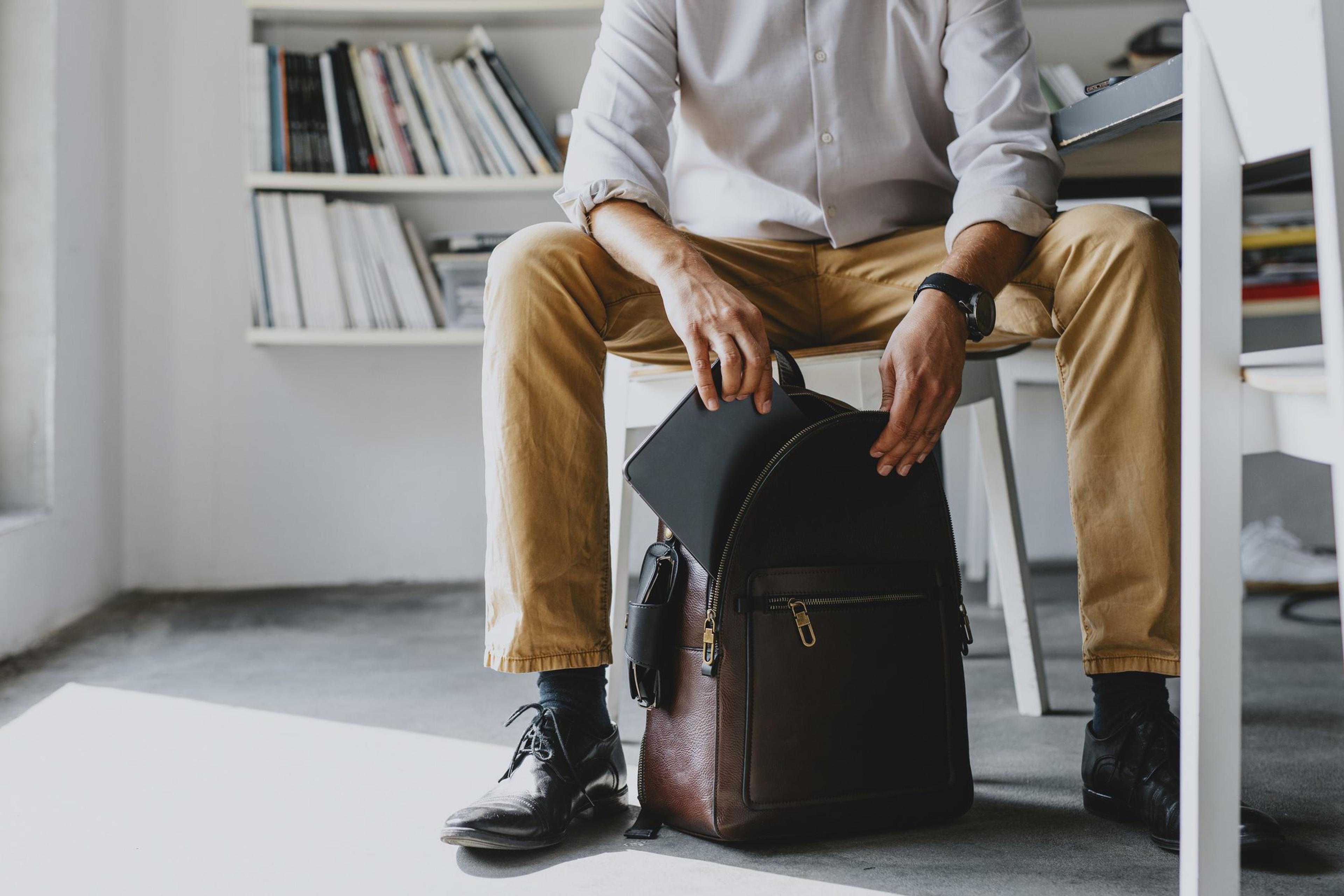Navigating Lingering Social Anxiety Post COVID

Lindsay Knake
| 4 min read
Lindsay Knake is a brand journalist for Blue Cross B...

If your chest feels tight or you dread having to spend time with acquaintances or strangers, you may be experiencing social anxiety.
Anxiety is an emotion consisting of fear, dread, or uneasiness. It may be a reaction to a stressor or event, or you may not understand the origin of the feeling. Social anxiety is anxiety directly related to fear around interacting with other people. After more than two years during the COVID-19 pandemic when being around others was potentially dangerous, it’s no wonder an anxious person continues to feel that way.
Symptoms of social anxiety include:
- Fearing other people will negatively judge you.
- Fearing you will do something embarrassing.
- Expecting the worst outcome in a social experience.
- Avoiding social interactions because you’re afraid.
- Intense fear during a social experience.
- Ruminating over your actions during a social situation.
Here are ways to navigate lingering social anxiety after the pandemic:
Build an emotional toolbox.
Creating your own toolkit to deal with anxiety gives you options when you’re struggling. Learning how to ground yourself in private or in public places can regulate your nervous system and provide a sense of relief.
Here are practices that can help:
- Deep breathing: Slow, deep breaths help regulate your nervous system.
- Box breathing: Box breathing is breathing in for a count of four, holding for a count of four, exhaling for a count of four, and holding for a count of four.
- Meditation: Meditation, which could involve staying present with your breath or repeating a mantra, is also a regulating practice.
- 5-4-3-2-1 exercise: This exercise involves naming five things you see, four things you touch, three things you can hear, two things you can smell, and one thing you can taste. It can shift your thoughts from an anxious future to the present moment.
In order to see a benefit from these practices, you’ll need to practice them daily for a few weeks. Working on these with a therapist or mental health professional can help even more.
Talk to a trusted friend or therapist.
If you are struggling with social anxiety while people around you seem fine and excited to engage in regular activities, remember you are not alone. According to the American Psychiatric Association, 43% of Americans said they feel more anxious than they did in 2023.
Talking to a trusted loved one or therapist to share your fears, awkwardness, or discomfort can help. Empathy and compassion can go a long way in reducing the anxiety.
You can also talk to yourself like you would talk to a friend as people tend to be harder on themselves than they are on others.
Don’t avoid.
Part of your anxiety may be the lack of practice. Prior to the pandemic, people regularly interacted with others at work and school. It can also be easy to lose confidence because you got out of the habit.
Don’t avoid interacting with people. Anxiety can grow if you continue to heed it. To combat anxiety, you may need to face it head on. If you’re feeling anxious about a social interaction or event, take small, slow steps to engage socially. Taking one step can show you your anxiety isn’t correct and that you can survive the social interaction. By taking deliberate, slow action, you’ll gain confidence.
If your anxiety continues, talk to your primary care physician about treatment options.
Blue Cross Blue Shield of Michigan and Blue Care Network can help members find an in-network mental health professional by calling behavioral health access lines listed below:
PPO: Behavioral Health Access Line | 1-800-762-2382
A free and confidential resource that’s just a call away when you need immediate support. Behavioral health professionals answer, 24/7.
HMO: Behavioral Health Access Line | 1-800-482-5982
Connect with a behavioral health clinician if you need help finding a mental health or substance use provider.
Behavioral health clinicians are available for routine assistance from 8 a.m. to 5 p.m., Monday through Friday. For urgent concerns after hours, clinicians are also available 24 hours a day, seven days a week.
Learn more about mental health and options you have as a member to seek help at bcbsm.com/mentalhealth.
Image: Getty Images
Related:





